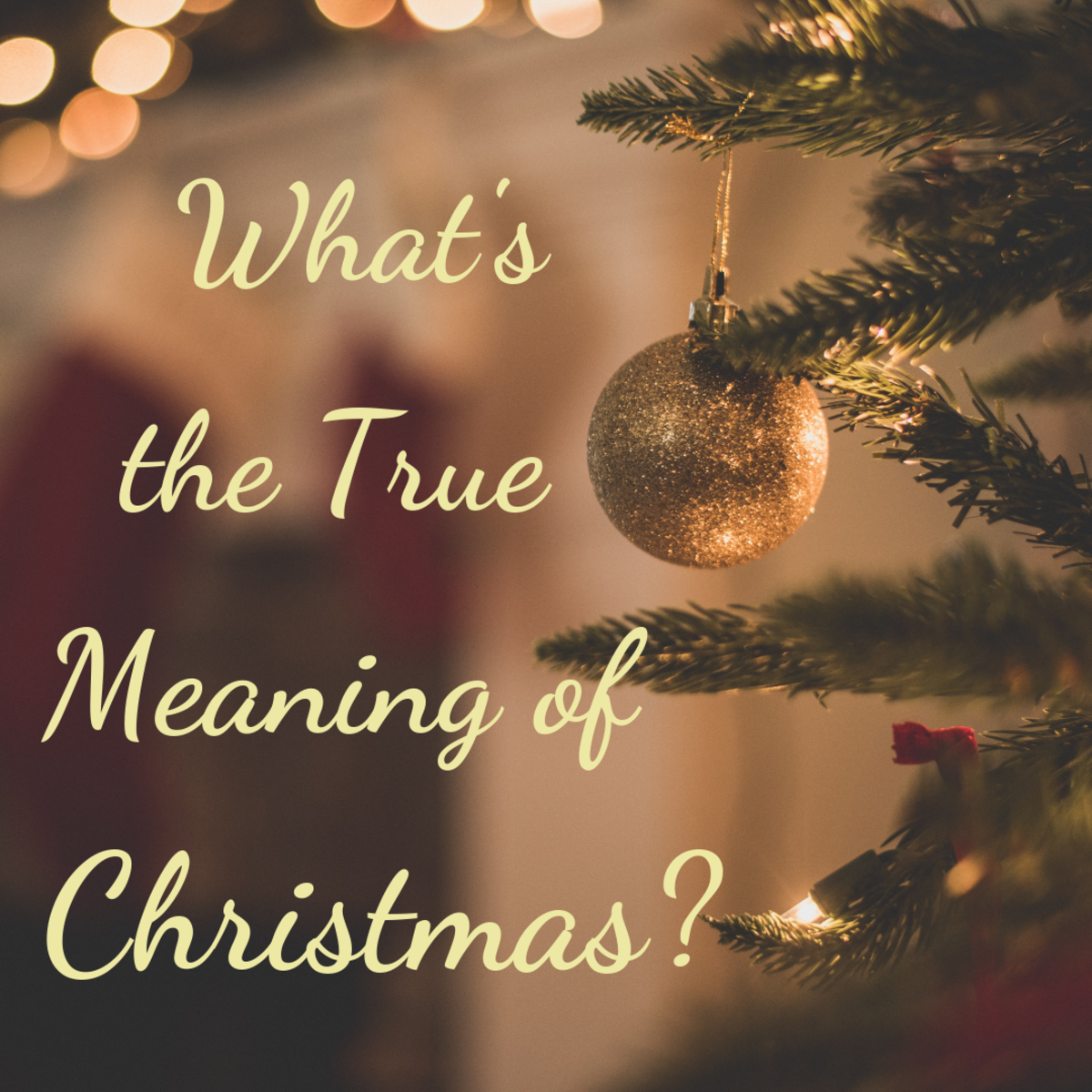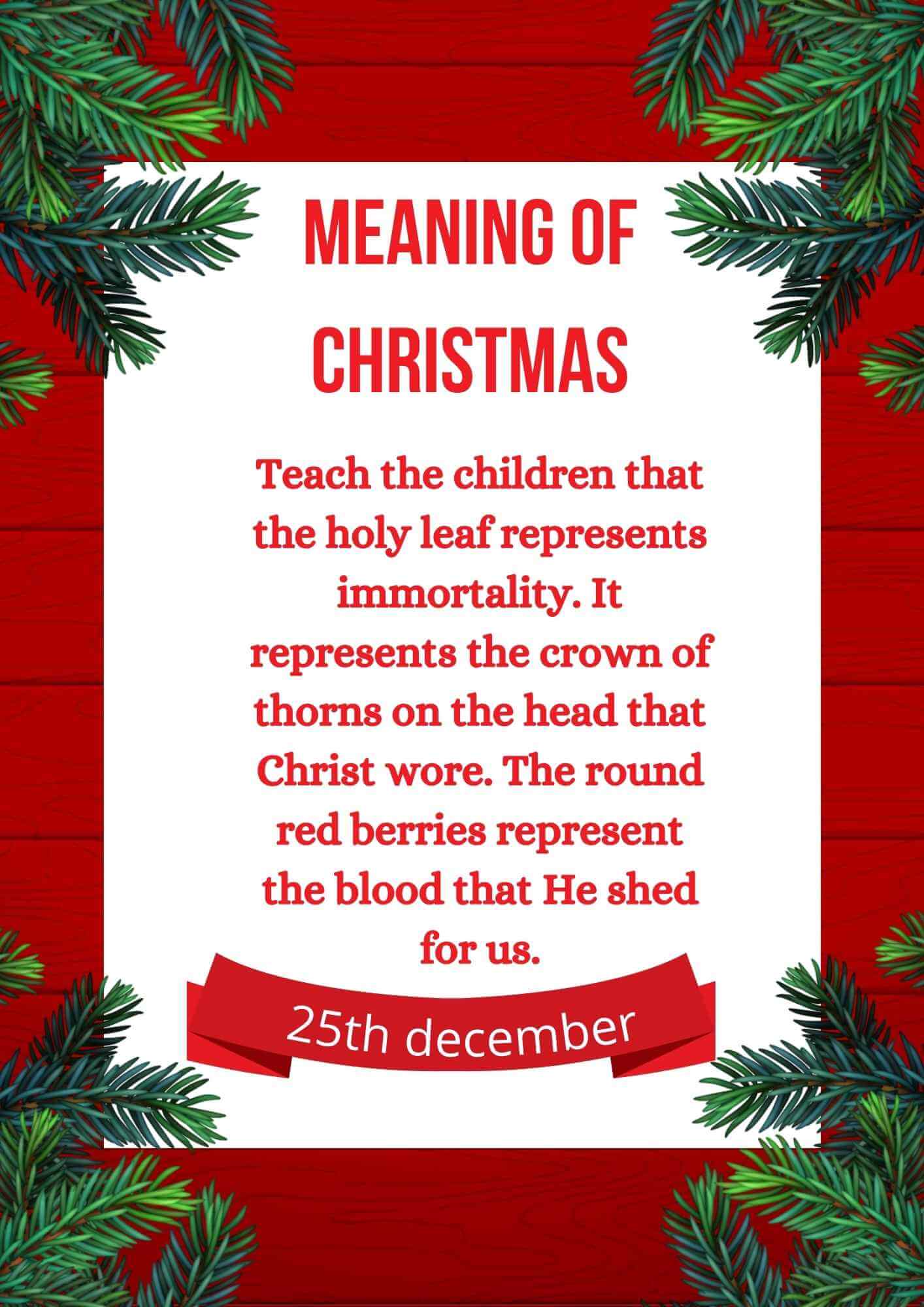The Meaning Of "Christmas": Unveiling The Essence Of A Holiday
The Meaning of "Christmas": Unveiling the Essence of a Holiday
Related Articles: The Meaning of "Christmas": Unveiling the Essence of a Holiday
Introduction
With enthusiasm, let’s navigate through the intriguing topic related to The Meaning of "Christmas": Unveiling the Essence of a Holiday. Let’s weave interesting information and offer fresh perspectives to the readers.
Table of Content
The Meaning of "Christmas": Unveiling the Essence of a Holiday

The word "Christmas" holds a profound significance in the hearts and minds of millions worldwide. It represents a time of celebration, reflection, and connection, rooted in a rich history and imbued with cultural and religious meaning.
Etymology and Historical Roots:
The word "Christmas" derives from the Middle English "Cristes Masse," a combination of "Crist" (Christ) and "Messe" (mass). This term reflects the central theme of the holiday: the celebration of the birth of Jesus Christ.
While the exact date of Jesus’ birth remains unknown, the early Church established December 25th as the date for the Nativity celebration. This date was likely chosen to coincide with pagan festivals celebrated around the winter solstice, a time of rebirth and renewal.
Religious Significance:
For Christians, Christmas marks the birth of their savior, Jesus Christ, believed to be the Son of God. The holiday holds immense religious significance, symbolizing hope, redemption, and the promise of eternal life.
The Christmas story, as narrated in the Bible, is a testament to God’s love for humanity and his willingness to sacrifice his own son for the salvation of mankind. The birth of Jesus is seen as the fulfillment of ancient prophecies and the beginning of a new era.
Cultural and Social Significance:
Christmas has transcended its purely religious roots and become a widely celebrated cultural phenomenon. The holiday has evolved into a time for family gatherings, gift-giving, festive decorations, and joyful traditions.
The commercialization of Christmas, while sometimes criticized, has contributed to its global reach, making it a time for shared experiences and community spirit. The exchange of gifts and the spirit of giving are central to the cultural meaning of Christmas, fostering a sense of connection and generosity.
The Symbolism of Christmas:
Christmas is rich in symbolism, with elements that hold deep meaning and evoke a sense of wonder and joy. Some of the most prominent symbols include:
- The Christmas Tree: The evergreen tree, adorned with ornaments and lights, symbolizes life, hope, and the eternal nature of God’s love.
- The Nativity Scene: Depicting the birth of Jesus, the nativity scene highlights the humble beginnings of the savior and the miraculous nature of his arrival.
- Santa Claus: The jolly figure of Santa Claus, associated with gift-giving and generosity, represents the spirit of giving and the joy of sharing.
- The Christmas Star: The star of Bethlehem, guiding the wise men to the newborn Jesus, symbolizes the guiding light of faith and the promise of divine guidance.
The Importance of Christmas:
Christmas holds profound importance for individuals and societies alike. It offers:
- A Time for Reflection: The holiday provides an opportunity to reflect on the past year, express gratitude, and set intentions for the future.
- A Celebration of Love: Christmas is a time to celebrate the love and connection between family and friends, fostering a sense of belonging and warmth.
- A Spirit of Giving: The holiday encourages generosity and kindness, inspiring acts of compassion and service to others.
- A Hope for the Future: Christmas offers a message of hope and renewal, reminding us of the possibility of transformation and positive change.
FAQs about "Christmas":
Q: When is Christmas celebrated?
A: Christmas is celebrated annually on December 25th.
Q: What are some common Christmas traditions?
A: Some common Christmas traditions include decorating a Christmas tree, exchanging gifts, attending church services, singing Christmas carols, and enjoying festive meals with loved ones.
Q: Is Christmas a religious holiday?
A: While Christmas has its roots in Christianity, it is now celebrated by people of various faiths and backgrounds.
Q: How is Christmas celebrated around the world?
A: Christmas traditions vary widely across cultures, with some countries emphasizing religious aspects, while others focus on cultural and social celebrations.
Tips for Celebrating Christmas:
- Focus on the Meaning: Remember the true meaning of Christmas, whether it be religious, cultural, or personal.
- Embrace Tradition: Engage in traditions that hold significance for you and your family, creating lasting memories.
- Show Kindness and Generosity: Practice acts of kindness and generosity towards others, spreading the spirit of giving.
- Be Mindful of Spending: Avoid excessive spending and focus on meaningful experiences and connections.
Conclusion:
The word "Christmas" encapsulates a multifaceted holiday, rich in history, symbolism, and cultural significance. It is a time for reflection, celebration, and connection, fostering a spirit of hope, generosity, and love. Whether celebrated for religious reasons, cultural traditions, or simply as a time for joyful gatherings, Christmas continues to hold a special place in the hearts of millions around the world.






/truemeaning-pixabay-light-315359-56a14a075f9b58b7d0bddbb6.jpg)

Closure
Thus, we hope this article has provided valuable insights into The Meaning of "Christmas": Unveiling the Essence of a Holiday. We appreciate your attention to our article. See you in our next article!
Leave a Reply